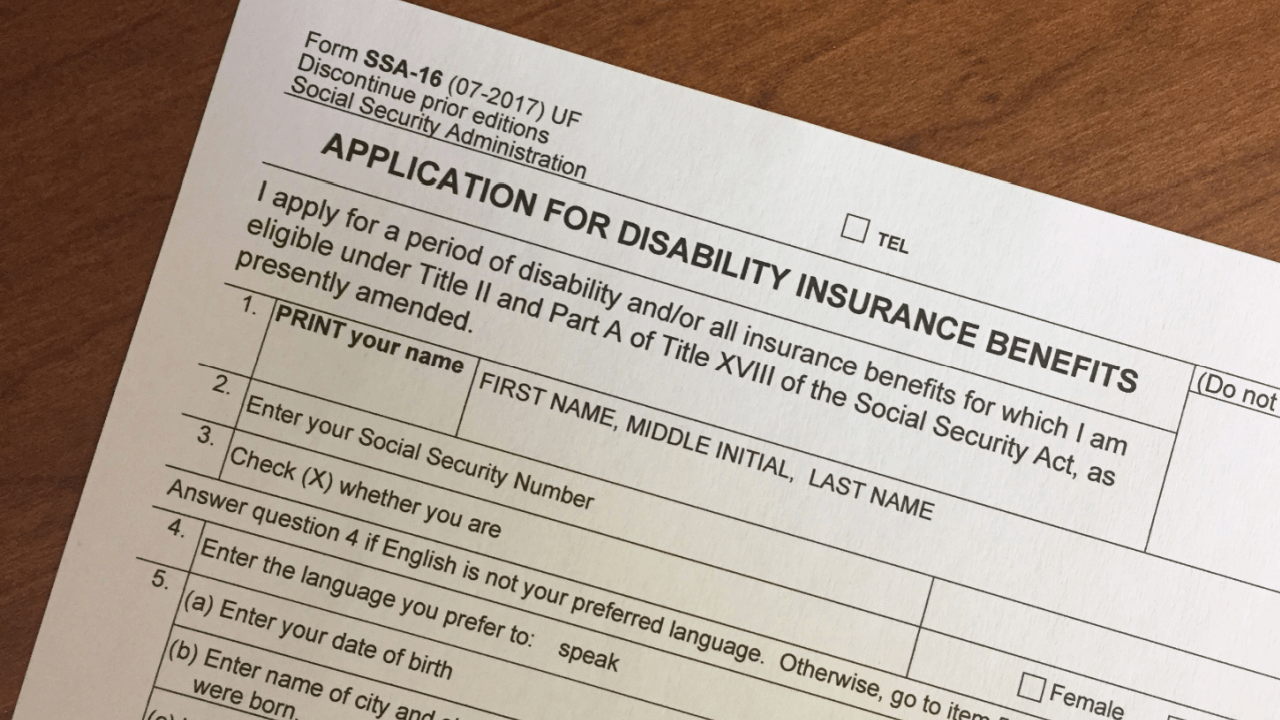
What is the Hardest Disability to Prove? Your Complete Evidence Strategy
Challenge Rankings: What is the Hardest Disability to Prove for SSA Benefits
What is the hardest disability to prove typically involves conditions with primarily subjective symptoms, limited objective testing, and variable presentation patterns that make consistent documentation challenging. Chronic pain syndromes, fibromyalgia, chronic fatigue syndrome, and certain mental health conditions often face greater scrutiny due to reliance on symptom reporting rather than definitive diagnostic testing that produces clear, measurable results.
These conditions require more comprehensive evidence development and expert medical testimony to demonstrate functional limitations that prevent substantial gainful activity. Understanding the challenges helps claimants and attorneys develop stronger cases through specialized documentation strategies.
Evidence Challenges: Why Certain Conditions Face Greater Scrutiny
What is the hardest disability to prove often correlates with conditions lacking objective diagnostic tests, clear imaging findings, or laboratory results that provide definitive evidence of impairment severity. The Social Security Administration requires objective medical evidence to support disability findings, making conditions with subjective symptoms more challenging to document effectively.
Administrative law judges rely heavily on objective medical evidence when making disability determinations, creating additional hurdles for conditions that depend primarily on symptom reporting and functional limitation descriptions rather than measurable test results.
Fibromyalgia Focus: Specific Documentation Requirements
What is the hardest disability to prove often includes fibromyalgia due to diagnosis relying on tender point examinations and symptom reporting rather than objective imaging or laboratory testing. The Department of Health and Human Services has established specific criteria for fibromyalgia evaluation, but approval still requires comprehensive functional limitation documentation.
Successful fibromyalgia cases require detailed treating physician opinions, functional capacity evaluations, and comprehensive pain documentation that demonstrates how symptoms prevent competitive employment despite appearing manageable during brief medical appointments.
Mental Health: Proving Invisible Disabilities
What is the hardest disability to prove includes mental health conditions that don’t result in obvious impairment or hospitalization but create significant functional limitations in work environments. Depression, anxiety, PTSD, and cognitive disorders require detailed psychological evaluation and expert testimony to demonstrate work-related restrictions.
The National Institute of Mental Health provides diagnostic criteria that support mental health disability evaluations, but proving work-related functional limitations requires comprehensive psychological testing and detailed treating provider opinions about workplace capacity restrictions.
Chronic Pain: Objective Evidence for Subjective Symptoms
What is the hardest disability to prove frequently involves chronic pain conditions where imaging studies appear normal despite severe functional limitations reported by claimants. These cases require creative evidence development that demonstrates how pain impacts specific work-related activities through expert medical testimony and functional assessment.
Professional pain management specialists can provide detailed opinions about pain severity and resulting functional limitations based on treatment response, medication requirements, and observed functional capacity during medical appointments.
Success Strategies: Overcoming Proof Challenges
What is the hardest disability to prove can achieve approval through comprehensive evidence development that addresses subjective symptom documentation through multiple objective sources including expert medical opinions, functional capacity evaluations, and detailed treating provider assessments of work-related limitations.
Professional disability attorneys understand how to develop challenging cases through expert witness coordination, comprehensive medical evaluation arrangement, and strategic evidence presentation that maximizes approval chances for difficult-to-prove conditions.
Alternative Approaches: When Standard Evidence Falls Short
What is the hardest disability to prove may require alternative evidence development including vocational expert testimony, work trial documentation, and comprehensive functional assessment that demonstrates inability to maintain competitive employment despite appearing capable during brief interactions.
These alternative approaches help bridge the gap between subjective symptom reporting and objective evidence requirements through professional evaluation and expert testimony that explains how conditions impact sustained work capacity.
Professional Support: What is the Hardest Disability to Prove Assistance Available
What is the hardest disability to prove requires specialized legal and medical expertise that understands evidence development strategies for challenging conditions through comprehensive case building and expert testimony coordination. These complex cases benefit significantly from professional representation that knows how to overcome documentation challenges and present compelling evidence.
Expert Guidance: What is the Hardest Disability to Prove Help Available
Don’t let challenging documentation requirements prevent you from pursuing legitimate disability benefits for genuinely disabling conditions. Visit social security disability today to connect with experienced disability attorneys who specialize in complex cases and understand evidence development strategies for the hardest conditions to prove. Your legitimate disability deserves professional representation that knows how to build winning cases.
Frequently Asked Questions
1. What is the hardest disability to prove among all Social Security disability conditions?
Chronic pain syndromes, fibromyalgia, and chronic fatigue syndrome often face the greatest scrutiny due to reliance on subjective symptom reporting rather than objective diagnostic testing.
2. What is the hardest disability to prove in mental health conditions specifically?
Mild to moderate depression and anxiety without hospitalization require comprehensive psychological evaluation and expert testimony to demonstrate work-related functional limitations effectively.
3. What is the hardest disability to prove when medical tests appear normal?
Conditions with normal imaging and laboratory results require creative evidence development through expert medical opinions, functional assessments, and comprehensive symptom documentation.
4. What is the hardest disability to prove for younger applicants under age 50?
Mental health conditions and chronic pain disorders face additional scrutiny for younger claimants since SSA expects greater work adaptability and vocational rehabilitation potential.
5. What is the hardest disability to prove can still achieve approval with proper evidence?
Professional representation and comprehensive evidence development help challenging conditions achieve approval through expert testimony and detailed functional limitation documentation.
Key Takeaways
- Chronic pain syndromes, fibromyalgia, and chronic fatigue syndrome face the greatest documentation challenges due to reliance on subjective symptom reporting
- Comprehensive evidence development through multiple specialist opinions and functional capacity evaluations helps overcome objective testing limitations
- Mental health conditions require detailed psychological evaluation and expert testimony to demonstrate work-related functional limitations effectively
- Professional legal representation becomes essential for challenging conditions since attorneys understand specialized evidence development strategies
- Legitimate disabling conditions can achieve approval through proper evidence development regardless of documentation difficulty when comprehensive case building addresses SSA requirements


